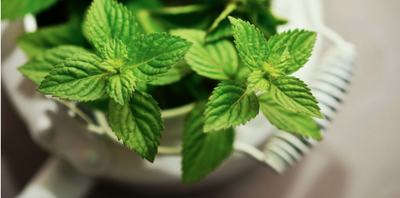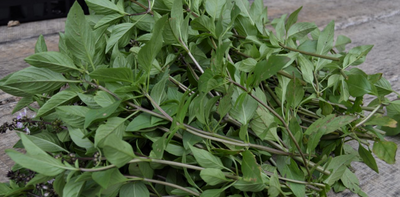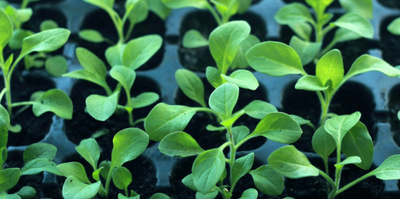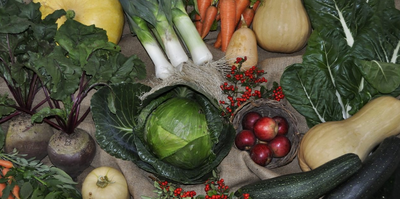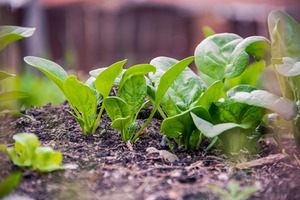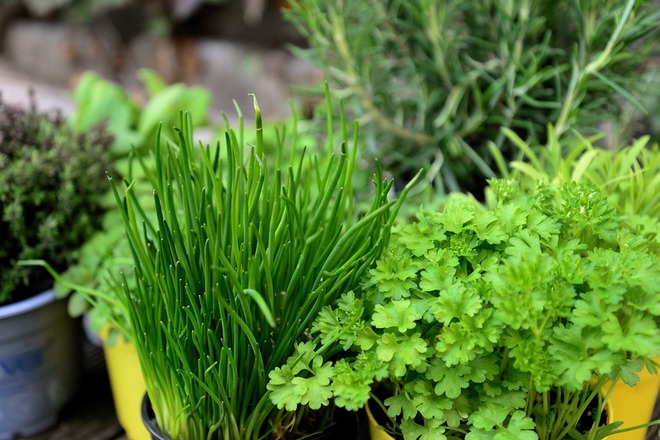
Imagine snipping fresh basil leaves for pasta, fragrant mint for tea, or crisp parsley for garnish—right from your windowsill. Growing herbs indoors brings all that right into your kitchen, no garden required. Plus, an indoor herb garden adds life, color, and an enticing aroma to your home. This guide will take you through everything you need to know about growing herbs indoors:  choosing the right herbs, setting up the ideal environment, keeping plants healthy, and solving common issues. Let’s dive into this rewarding journey of cultivating your own herb garden, indoors and easy to access.
choosing the right herbs, setting up the ideal environment, keeping plants healthy, and solving common issues. Let’s dive into this rewarding journey of cultivating your own herb garden, indoors and easy to access.
Benefits of Growing Herbs Indoors
Growing herbs indoors isn’t just convenient; it also transforms your kitchen into a fresh, green space. Here’s why it’s worth the effort:
- Fresh Herbs at Your Fingertips: Say goodbye to store-bought herbs that wilt after a few days. Growing your own means fresh flavors year-round.
- Cost-Effective: Small pots of basil, rosemary, or thyme can save you money over time compared to frequently buying fresh herbs.
- Air Quality Boost: Indoor herbs don’t just smell great—they can help purify the air, adding a natural freshness to your home.
With these benefits in mind, let’s explore the best herbs to grow indoors.
Best Herbs for Indoor Growing
Some herbs handle indoor conditions better than others. Here are a few that thrive indoors and offer versatile flavors:
- Basil: Prefers warm temperatures and lots of sunlight. Keep it on a sunny windowsill, and pinch back leaves often to promote bushy growth.
- Mint: Hardy and easy to grow, mint enjoys bright, indirect light and can handle lower-light conditions better than many herbs.
- Rosemary: Loves bright light and slightly dry soil. Place in a sunny spot, and be cautious not to overwater.
- Thyme: Thrives in sunny conditions and needs well-drained soil. A little neglect with watering is better than overdoing it!
- Parsley: Tolerates lower light and enjoys slightly moist soil. Perfect for an indoor herb collection.
These herbs not only grow well indoors but add flavor to various dishes. Choose a few that fit your cooking style and growing conditions.
Setting Up Your Indoor Herb Garden
Creating a perfect home for your herbs doesn’t require much. Here’s what you need to get started:
Choosing the Right Location
- Light: Most herbs need at least 6 hours of sunlight daily. A south-facing window works well. If your space doesn’t get enough natural light, a simple LED grow light can provide a helpful boost.
- Temperature & Humidity: Herbs are happy in 65–75°F. Avoid placing them near drafts or heating vents, as they prefer stable conditions.
Containers and Soil
- Container Size and Drainage: Small pots with drainage holes are ideal. Herbs like to stay moist but can’t handle waterlogged soil. Choose pots at least 6–8 inches deep for good root space.
- Soil Mix: Use a high-quality potting mix formulated for herbs or indoor plants. These mixes typically have good drainage and enough nutrients to get your herbs off to a strong start.
Watering Essentials
- How Much and How Often: Herbs generally need watering 1–2 times per week, depending on the temperature and humidity in your home. Water when the top inch of soil feels dry.
- Drainage is Key: Always ensure water can escape from the pot to prevent root rot.
Caring for Indoor Herbs
A bit of regular maintenance will keep your indoor herb garden thriving. Here’s how to keep them happy and growing strong.
Pruning and Harvesting
- Regular Pruning: Prune often to encourage more growth. With herbs like basil, pinch the stems right above a set of leaves—this will make the plant bushier and prevent it from getting too leggy.
- Harvesting Tips: For the best flavor, harvest herbs in the morning when they’re most fragrant. Never remove more than a third of the plant at once.
Fertilizing
- Frequency: Indoor herbs need a gentle feed every month or so. Use a balanced, liquid fertilizer diluted to half-strength.
- Type of Fertilizer: Choose organic fertilizers if possible. They release nutrients slowly and support healthy, natural growth.
Pest Control
Indoor herbs aren’t immune to pests, but they’re generally easy to control. Here’s what to look out for:
- Common Pests: Aphids, spider mites, and fungus gnats are common indoor herb pests. Check the undersides of leaves regularly.
- Natural Pest Control: Spray a mild solution of water and dish soap on the affected leaves. Neem oil is another safe option for herbs.
Troubleshooting Common Issues
As with any plant, indoor herbs may encounter a few issues. Here’s how to address common problems:
- Yellowing Leaves: Often caused by overwatering or nutrient deficiency. Adjust watering, and consider adding a mild fertilizer.
- Leggy or Weak Growth: This usually means your herbs need more light. Try relocating them to a sunnier spot or adding a grow light.
- Drooping or Wilting: Herbs droop when they’re thirsty or when their roots are oversaturated. Check the soil and adjust watering accordingly.
Creative Indoor Herb Garden Ideas
Looking for ways to make your herb garden fit your style? Try these ideas:
- Vertical Gardens: Stack your herbs in a wall-mounted planter to save counter space and add visual interest.
- Windowsill Planters: Place a row of small pots on a sunny windowsill to keep herbs within reach while cooking.
- Hydroponic Kits: Hydroponics lets you grow herbs without soil. Kits are compact and easy to maintain, with a modern look.
Tips for Using Fresh Herbs
Your hard work deserves to shine in the kitchen! Here’s how to make the most of your herbs:
- Incorporate into Recipes: Fresh basil for pesto, mint for tea, parsley as a garnish—the possibilities are endless.
- Store for Later Use: To keep harvested herbs fresh, wrap them in a damp paper towel and store in a sealed bag in the fridge.
- Preserving Tips: Freeze chopped herbs in ice cube trays with olive oil or water, or dry them by hanging small bundles in a warm, dry place.
FAQs
1. Can I grow herbs indoors without natural sunlight?Yes! While natural light is ideal, grow lights are a great substitute. An LED grow light placed 4–6 inches above the herbs can provide the right spectrum of light for growth.
2. How long will indoor herbs last?With proper care, many herbs can live and produce for years indoors. Some herbs, like basil, may naturally go through cycles, while perennial herbs like rosemary can last a long time with good care.
3. What’s the best way to water indoor herbs?The best approach is to water when the top inch of soil feels dry. Avoid letting pots sit in water, and always ensure your containers have drainage holes to prevent root rot.
Starting an indoor herb garden is a rewarding project that’s easier than you might think. By setting up the right space, choosing the right herbs, and following a few simple care tips, you’ll have fresh flavors just a snip away. Embrace the process, enjoy the aroma and taste of home-grown herbs, and soon, your kitchen will be a mini indoor oasis of greenery and freshness. Ready to get growing? Grab a few pots and start your indoor herb garden today!
Other Blog Posts You May Be Interested In:
Essential Frost Protection for Vegetable Gardens: Tips to Safeguard Your Tender Plants
Bringing Houseplants Indoors? Here Are 5 Must-Do Tips for a Smooth Move

About RightPlantz - RightPlantz is your go-to source for all things gardening. RightPlantz grows better gardeners.

